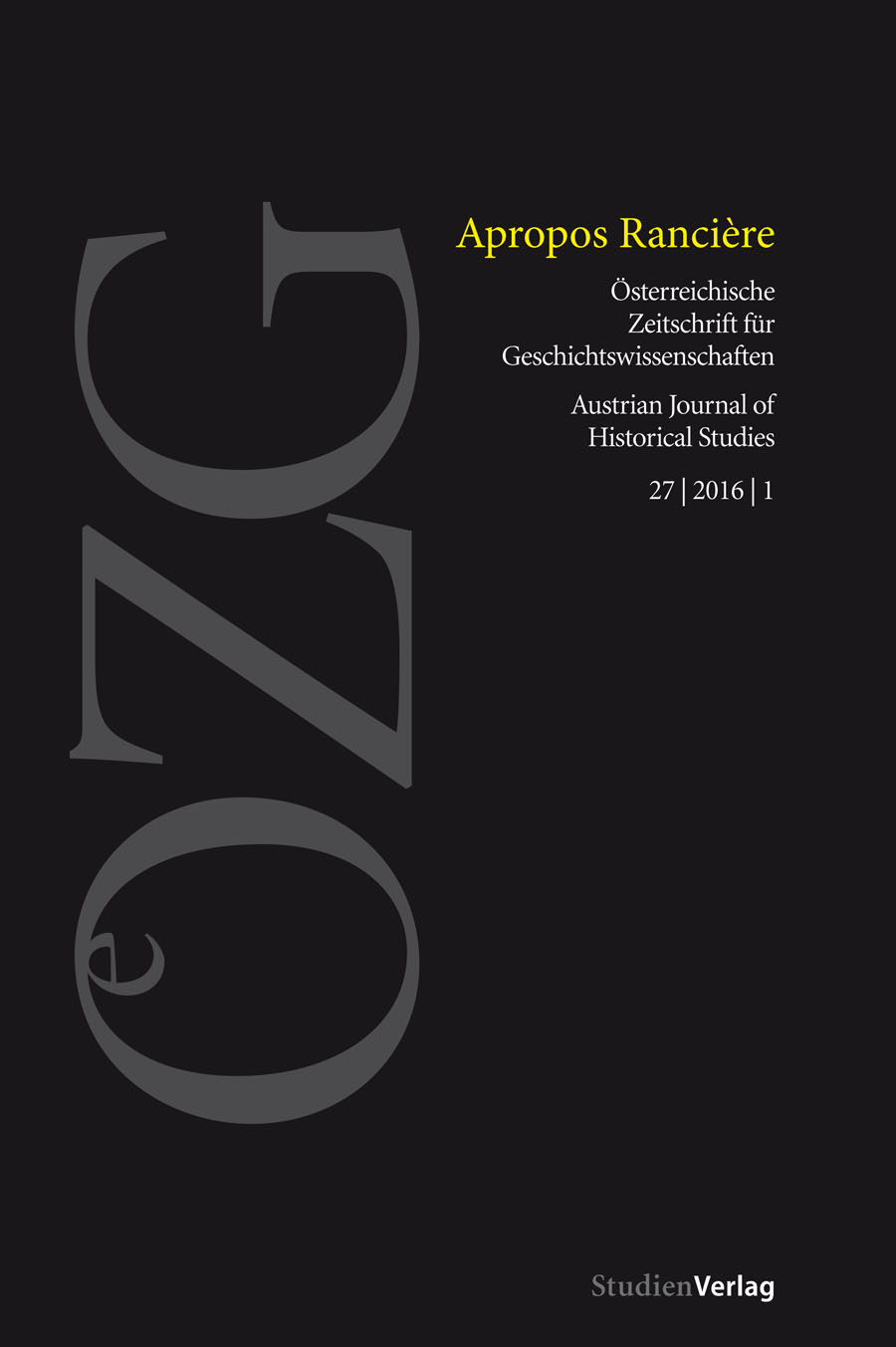Die Herausforderung, (nicht) für andere zu sprechen
Was Jacques Rancière von Gayatri Spivak lernen könnte
DOI:
https://doi.org/10.25365/oezg-2016-27-1-2Schlagworte:
activist research, emancipation, equality, indisciplinarity, May ’68, Rancière, Spivak, subaltern positionsAbstract
This paper seeks to demonstrate that Rancière should not be conceived of as historian (or art historian, literary or lm theorist, philosopher etc.) but, rather, as an activist attester and witness of equality and that he, thereby, transgresses all kinds of disciplinary boundaries. In order to flesh this claim out, the rst part of the essay examines Rancière’s archival studies that are devoted, according to the main claim of this paper, to verifying the capacity of subaltern beings to speak on behalf of and thereby emancipate themselves. e second part introduces Gayatri Spivak’s widely known contention that the subalterns cannot always and everywhere speak for themselves as a critique of Rancière’s basic assumption. Whereas the third section focuses on Rancière’s account of equality in order to fend o some dimensions of Spivakian critique, the forth aims at showing that and why both Rancière’s account of equality and his activity as witness and attester of equality would have profited tremendously from taking note of Spivak in particular and the historical approach of the subaltern studies group in general.


